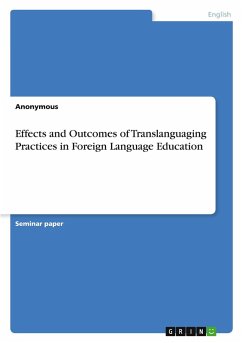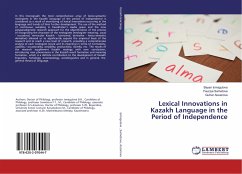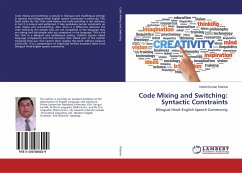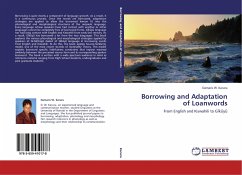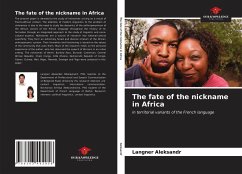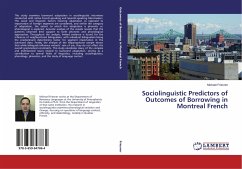
Sociolinguistic Predictors of Outcomes of Borrowing in Montreal French
Versandkostenfrei!
Versandfertig in 6-10 Tagen
55,99 €
inkl. MwSt.

PAYBACK Punkte
28 °P sammeln!
This study examines loanword adaptation in sociolinguistic interviews conducted with native French-speaking and Spanish-speaking Montrealers. The social and linguistic factors favoring adaptation as opposed to importation of foreign segments are considered, and within the category of adaptation, the extent to which this adaptation is phonetic vs. phonological is explored. Acoustic analysis of the vowels reveals that the patterns observed lend support to both phonetic and phonological approaches. Throughout the analysis, limited evidence is found for the influence of neighborhood bilingualism, ...
This study examines loanword adaptation in sociolinguistic interviews conducted with native French-speaking and Spanish-speaking Montrealers. The social and linguistic factors favoring adaptation as opposed to importation of foreign segments are considered, and within the category of adaptation, the extent to which this adaptation is phonetic vs. phonological is explored. Acoustic analysis of the vowels reveals that the patterns observed lend support to both phonetic and phonological approaches. Throughout the analysis, limited evidence is found for the influence of neighborhood bilingualism, with individual bilingualism being the predominant determining factor for segment importation in the loanword data. Finally, the analysis of the Hispanophone sample shows that while bilinguals influence variants' rate of use, they do not affect the overall grammatical constraints. This study elucidates many of the complex and multifaceted issues related to loanword adaptation, serving as a contribution to several fields of linguistics, including sociolinguistics, phonology, phonetics, and the study of language contact.



